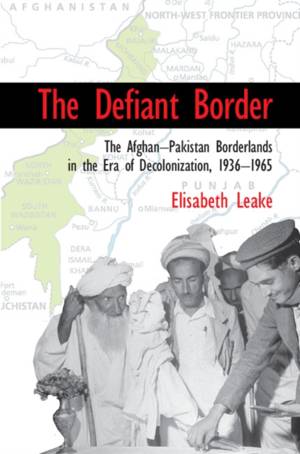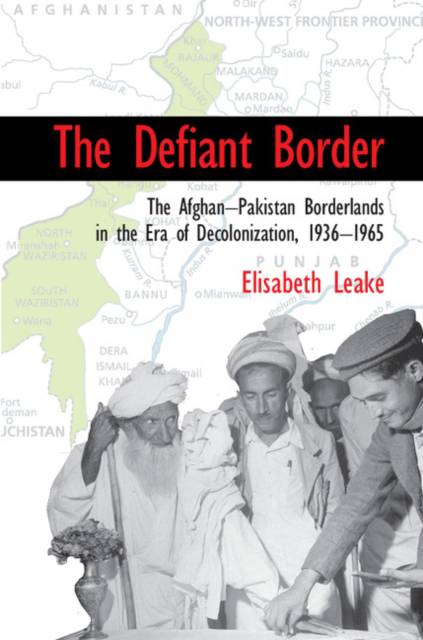
Bedankt voor het vertrouwen het afgelopen jaar! Om jou te bedanken bieden we GRATIS verzending (in België) aan op alles gedurende de hele maand januari.
- Afhalen na 1 uur in een winkel met voorraad
- In januari gratis thuislevering in België
- Ruim aanbod met 7 miljoen producten
Bedankt voor het vertrouwen het afgelopen jaar! Om jou te bedanken bieden we GRATIS verzending (in België) aan op alles gedurende de hele maand januari.
- Afhalen na 1 uur in een winkel met voorraad
- In januari gratis thuislevering in België
- Ruim aanbod met 7 miljoen producten
Zoeken
The Defiant Border
The Afghan-Pakistan Borderlands in the Era of Decolonization, 1936–1965
Elisabeth Leake
€ 151,45
+ 302 punten
Uitvoering
Omschrijving
The Defiant Border explores why the Afghan-Pakistan borderlands have remained largely independent of state controls from the colonial period into the twenty-first century. This book looks at local Pashtun tribes' modes for evading first British colonial, then Pakistani, governance; the ongoing border dispute between Pakistan and Afghanistan; and continuing interest in the region from Indian, US, British, and Soviet actors. It reveals active attempts by first British, then Pakistani, agents to integrate the tribal region, ranging from development initiatives to violent suppression. The Defiant Border also considers the area's influence on relations between Pakistan, Afghanistan, and India, as well as its role in the United States' increasingly global Cold War policies. Ultimately, the book considers how a region so peripheral to major centers of power has had such an impact on political choices throughout the eras of empire, decolonization, and superpower competition, up to the so-called 'war on terror'.
Specificaties
Betrokkenen
- Auteur(s):
- Uitgeverij:
Inhoud
- Aantal bladzijden:
- 272
- Taal:
- Engels
- Reeks:
Eigenschappen
- Productcode (EAN):
- 9781107126022
- Verschijningsdatum:
- 24/12/2016
- Uitvoering:
- Hardcover
- Formaat:
- Genaaid
- Afmetingen:
- 154 mm x 239 mm
- Gewicht:
- 503 g

Alleen bij Standaard Boekhandel
+ 302 punten op je klantenkaart van Standaard Boekhandel
Beoordelingen
We publiceren alleen reviews die voldoen aan de voorwaarden voor reviews. Bekijk onze voorwaarden voor reviews.









